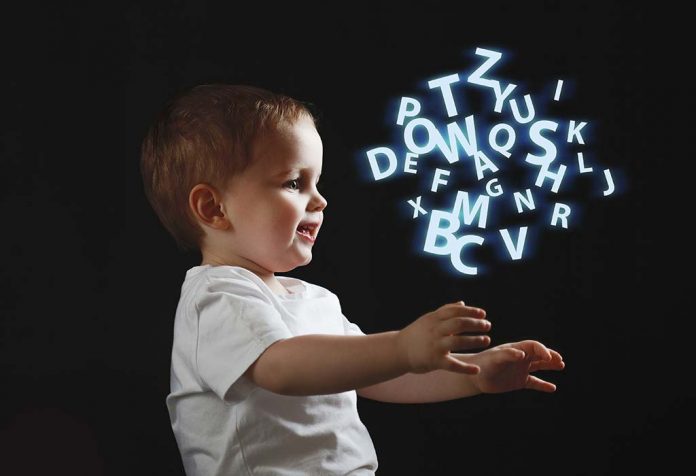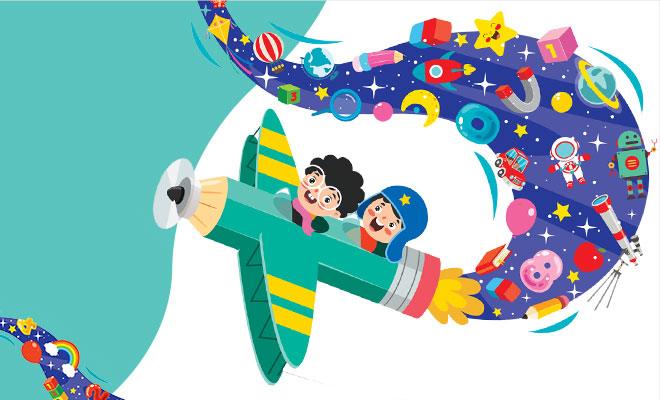Eager to hear the first real words from your baby’s mouth?
Relax! Your baby can comprehend whatever you say to them and will soon respond once they figure out a way how to do so….and believe us, nothing can stop them then!
Everything from their coos to growls to adorable yet nonsensical singing all day long is leading you closer to the day you’ll hear their first real words. Continue reading to know more about your little one’s talking milestone.
Thank you for reading this post, don't forget to subscribe!
When Will You Hear Your Baby’s First Words?
Indeed, one of the most critical milestones for babies is when they start talking. Babies learn to talk and start developing communication skills in their first three years of life. Let’s continue reading to see how this process unfolds and what parents can do to encourage their baby’s ability to talk.
Baby Talking Milestones
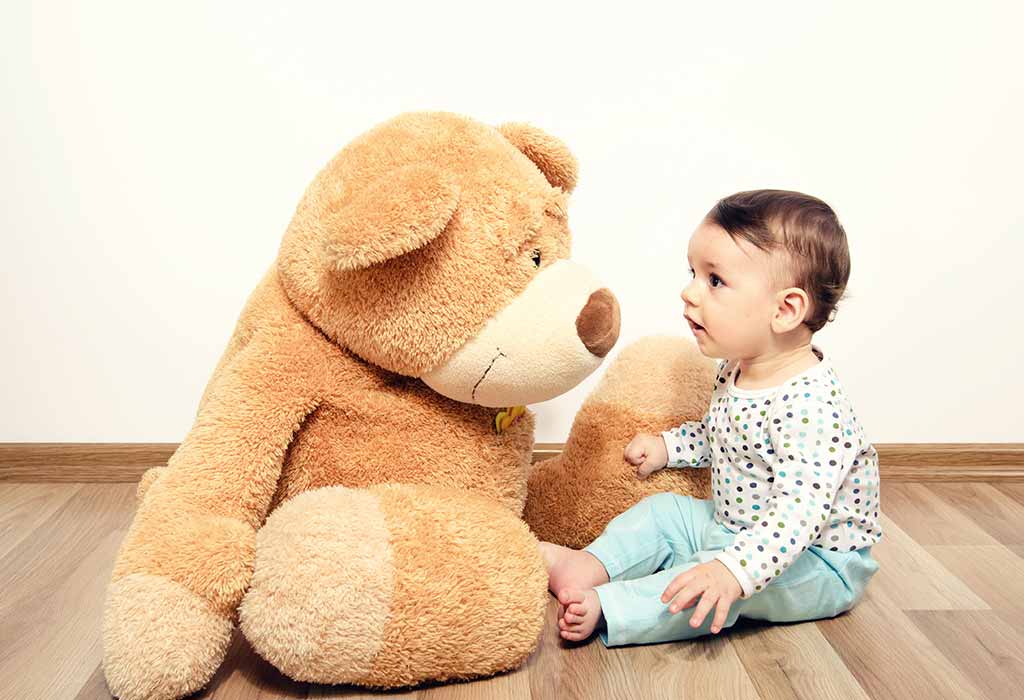
Birth To 3 Month-Old Baby
At this age, your baby is listening carefully to your voice and tries to make the same sound as yours with their coos and gurgles.
3 To 6 Month-Old Baby
At this age, your baby is learning how people talk to each other, and therefore concentrate when people are talking in from of them. You can expect some monosyllabic babbling come your baby.
6 To 9 Month-Old Baby
At this age, your baby will play with rhyming sounds like “baba or “dada.” They can differentiate between a happy voice and an angry voice too.
9 To 12 Months
At this age, your baby can understand basic words like “no,” “yes,” and “bye-bye.” You will also hear your baby making a lot of consonant sounds.
12 To 18 Months
At this age, your baby will ask you for things by looking at them and babbling or saying two-word phrases like “mumm-mumm” for water. But by the end of 18 months, you may begin to hear more complex words from your little one like “buk” – if they want you to read from a book or “caooo” if they spot a cow.
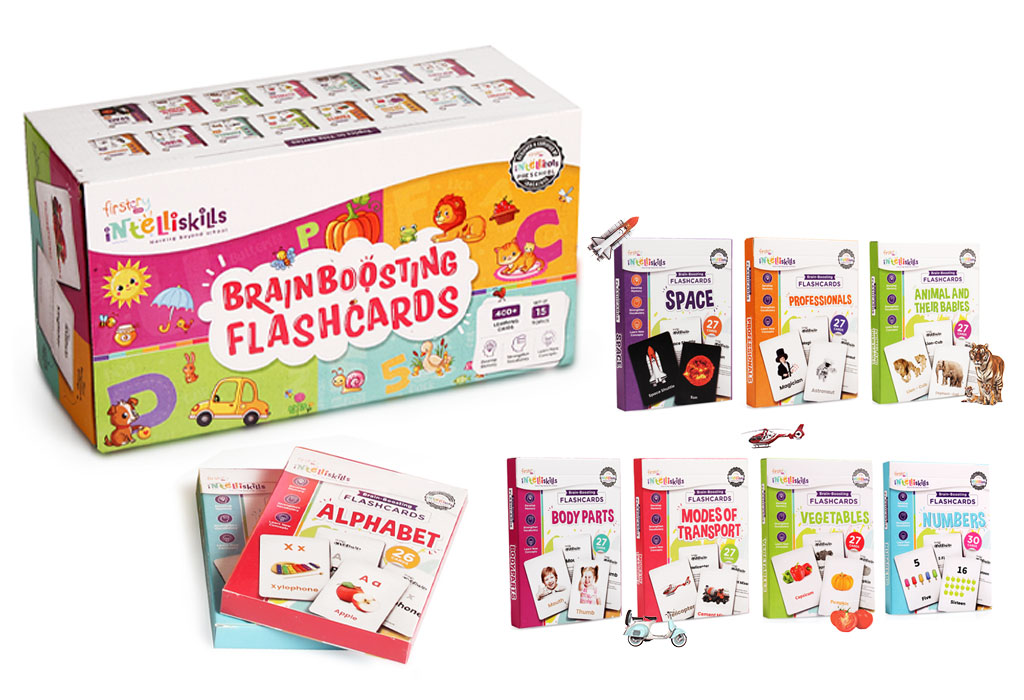
At this stage, unlock the potential of young minds with the Brain Boosting Flashcards, designed to enhance vocabulary and communication skills. Invest in a brighter future – Get your flashcards today!
18 Months To 2 Years
At this age, your baby will start using two or more words together to make short adorable sentences like “bus go” – if a bus is passing by or “dawg eat” – if they spot a dog eating food. The baby will also indulge themself in pretend play with dolls or any other things which will foster their language development.
2 To 3 Years
At this age, your baby will be talking with more complicated words and phrases and will also be able to answer simple questions like “Where is Papa?” and more. Your little one’s vocabulary will grow rapidly going ahead.
5 Ways To Encourage Your Little One To Talk
Puppet Talk
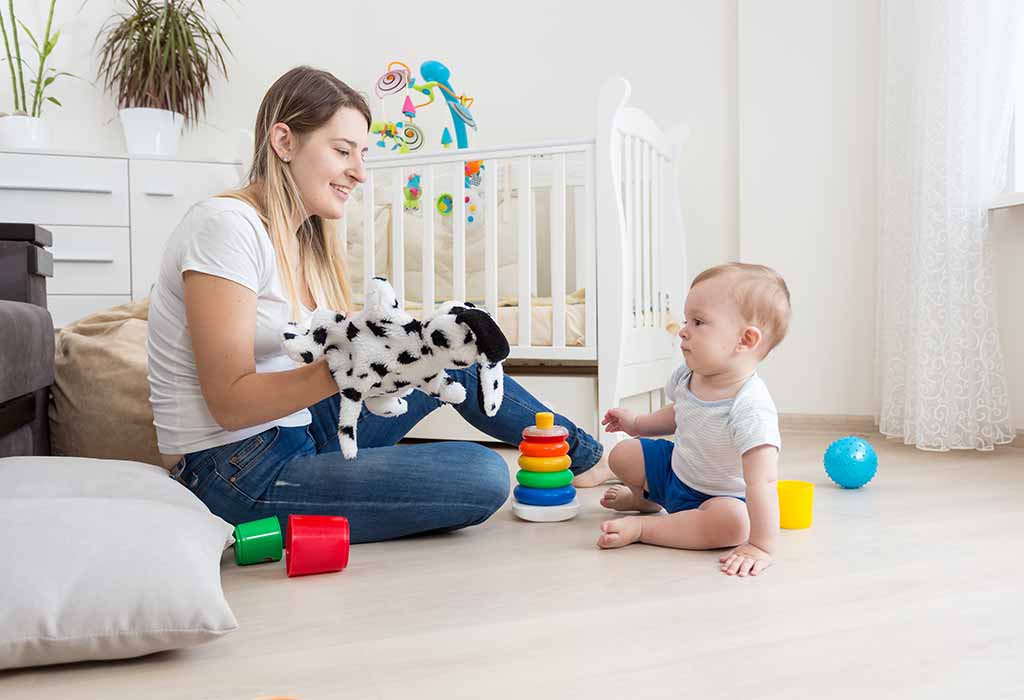
Grab your kid’s attention with some puppet talk. This will help build your baby’s imagination and language skills by creating new puppets and making different voices. We bet your baby will be talking back to your hand in no time.
Mimic It
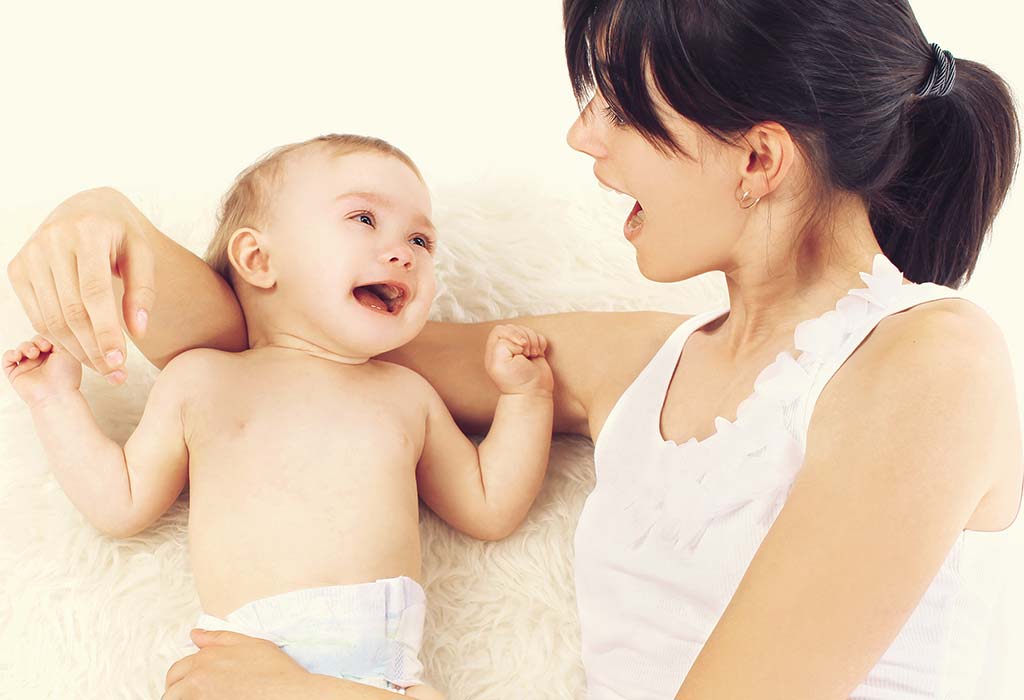
Mimicking can go a long way. Do respond to your little one, even to their smallest babbling. So, imitate your baby to encourage them to talk more.
Read Out Loud

Kids love to turn the pages of a book with attractive images like MY FIRST 100 WORDS. At first, they might only be looking at pictures, but slowly they will develop an interest in looking at the letters and words and soon, they’ll be reading them with your help.
Sing It Out
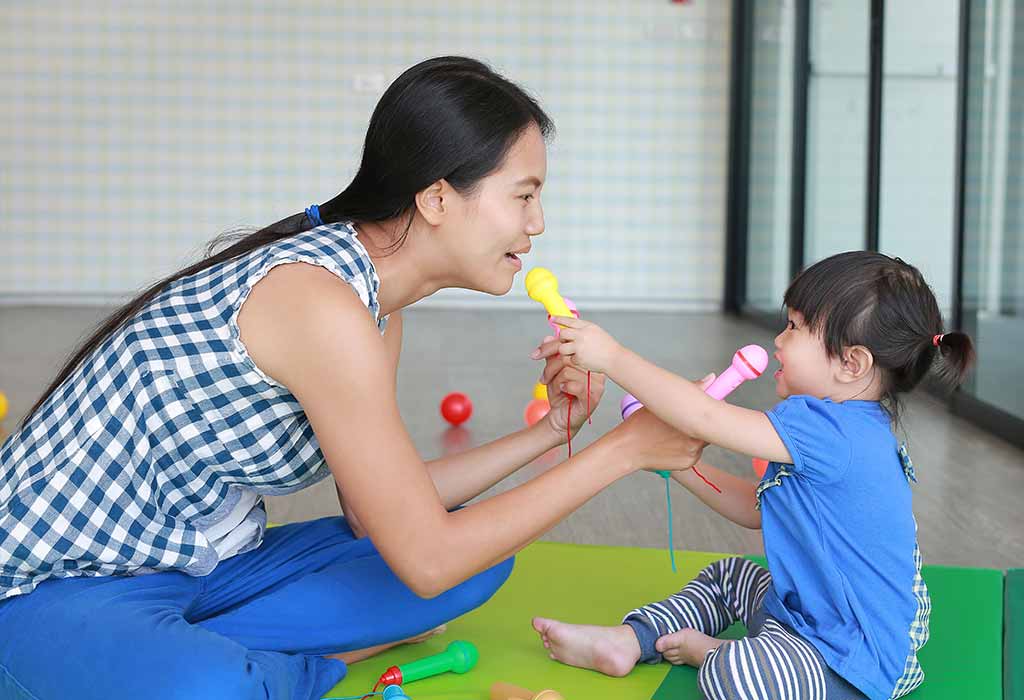
Words touch the brain, but music and rhythm can touch the soul! Baby songs and rhymes are a perfect way to make your little ones learn valuable language skills while keeping them entertained. Who knows, your baby might pick a word or two from the rhyme!
Word To Word
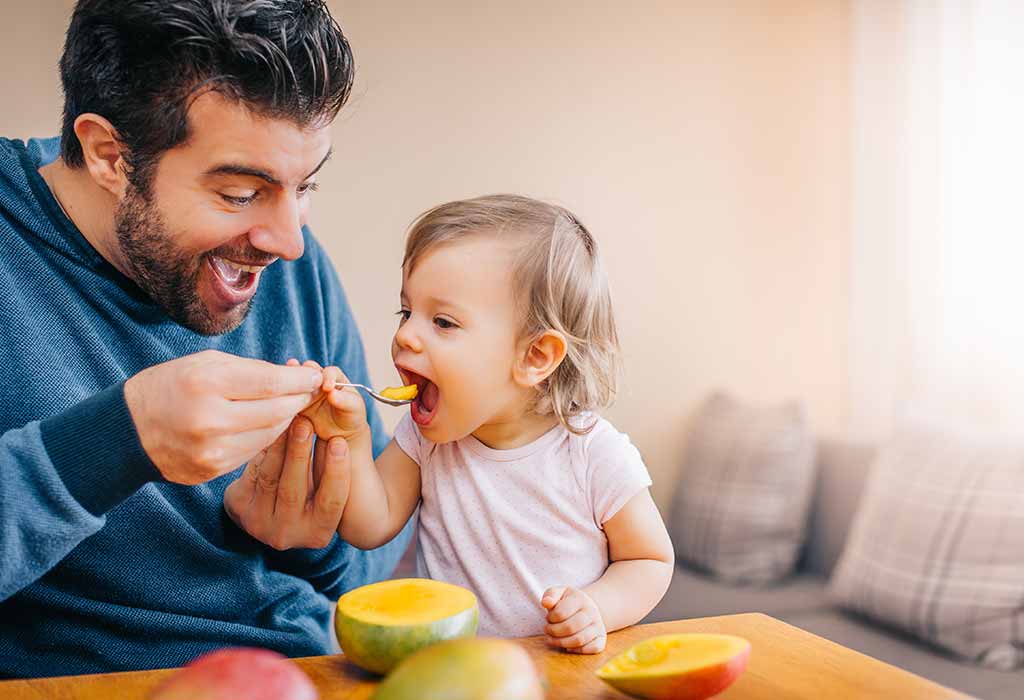
The best way to encourage your baby to talk is by engaging them using their own words. If your child is saying “mango,” you can say, “it’s a yellow mango,” emphasizing the new word “yellow” for them. This way, you’ll be able to add new words to their vocabulary, and eat some mango too!
Listening to your baby’s first real words can be exciting. While your wait for those sweet, adorable words, do remember that you need to encourage your little one constantly. Practice can help lay a solid foundation for the baby’s speech and language skills.



